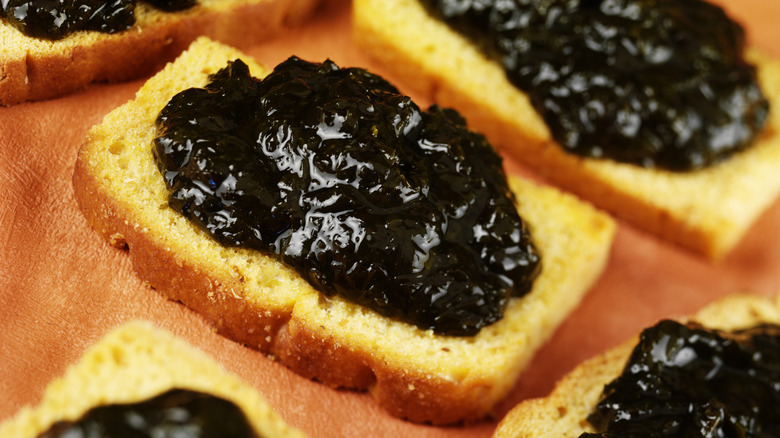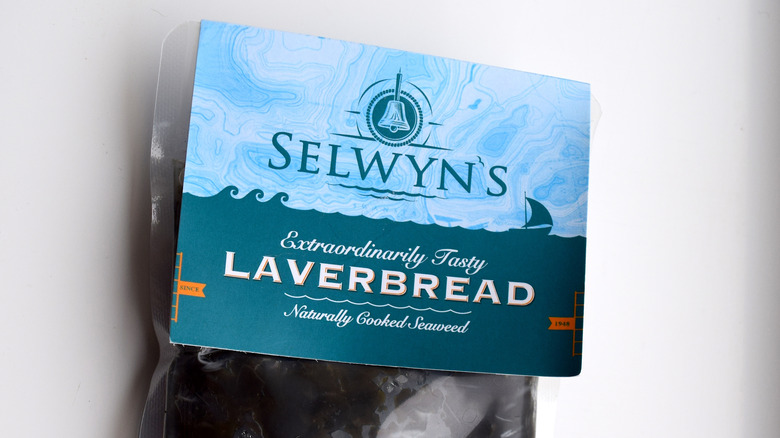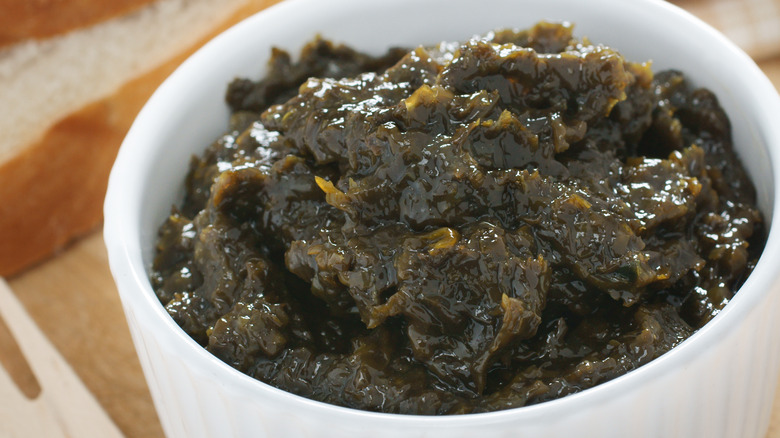What Exactly Is Welshman's Caviar?
Around the world, breakfasts are often tied to the cultural identity of a country. Australians love Vegemite slathered on toast, Costa Ricans start their day with a dish of rice and beans known as Gallo Pinto, and fried bean fritters known as kosai are commonly eaten for breakfast in Nigeria. Pastries are commonly enjoyed by the French and Italians, and many Americans eat sugary cereals and donuts at the beginning of the day.
Since the 17th century, the people of Wales in the United Kingdom have been enjoying something for breakfast that's unique to their cultural identity. This traditional part of what is referred to as a "full Welsh breakfast" has been harvested by its people for over 300 years (via Welsh Produce).
In Wales, they eat something called caviar that's not really caviar, a staple named laverbread that's not bread. It's a food that comes from the sea, but it's not seafood, a nutritional powerhouse that's been dubbed "black gold," but it isn't gold (per Business Wales). So, what is it?
The taste of Welshman's caviar
Part of a typical breakfast in Wales is something called Welshman's caviar, or laverbread, made from a seaweed called laver that is harvested by hand off the Welsh coast. The laver is made into a puree traditionally spread on hot buttered toast. The taste and texture were described as "cold, salty, and soft," by a Wales Online reporter who tried the delicacy and reported that the flavor improves when the laverbread is heated. Kiddle compares the taste to oysters or olives.
According to Business Wales, the name Welshman's caviar originates from a particularly famous Welshman. Actor Richard Burton, born and raised in Pontrhydyfen, Wales per IMDb, coined the term. Its more common name, laverbread — bara lawr in Welsh — comes from the tradition of rolling the seaweed like bread dough, coating it in oatmeal, and frying it in butter (via Atlas Obscura).
To make Welshman's caviar at home, first, buy some laver. Then boil it for several hours before pureeing it until it turns into a paste (per Welsh Food & Drink). Don't have any laver in the larder? No worries. Nori, easily found in most grocery stores, is laver under a different name (per Sea Veg).
The superfood of Wales
Because laver is seaweed, it comes with all the nutritional benefits of other kinds of seaweed (via WebMD). Due to the high amount of iron found in laver, Welsh mothers were instructed to feed their children laverbread when they were anemic, according to Business Wales. Laver is low in calories and contains high amounts of vitamin B12 (100% of your recommended daily intake), riboflavin, amino acids, and iodine. Unfortunately, those with thyroid disease or a sensitivity to iodine may want to abstain from eating laver and other seaweeds due to the high levels of iodine it contains. Though if you have your heart set on trying Welshman's caviar, there's good news. The cooking process used to make laverbread can reduce the amount of iodine by 99% (per Healthline).
The Welsh are protective of their local delicacy. The name laverbread falls under the designation of a Protected Destination of Origin (PDO) food by the United Kingdom, meaning it must come from Wales for it to be called laverbread (via GOV.UK).


